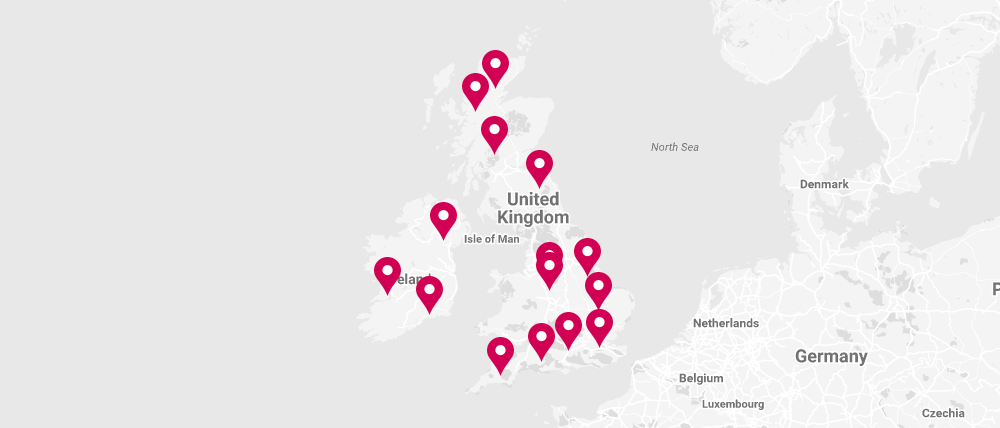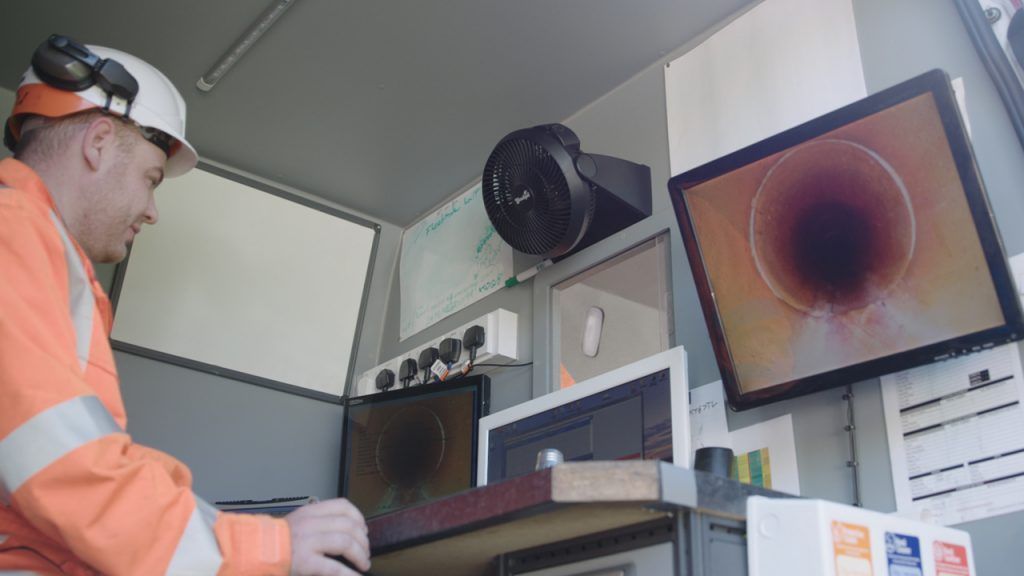
Resources
What shift pattern works best for you?
- 28th November
When considering a career in the utilities sector, understanding different shift patterns helps you determine which role aligns with your lifestyle and priorities. Shift patterns are designed to ensure round-the-clock coverage for services while providing employees with schedules that balance work and personal time. From 4 on 4 off shift patterns to more traditional Monday-to-Friday schedules, there are options to suit a range of needs.
At Lanes Group, we understand how the right shift pattern can enhance your job satisfaction and support your work-life balance. With a variety of shift options and job roles, we aim to match employees with the schedule that works best for them. This guide will explore common types of work shifts and their benefits, helping you decide which one fits your lifestyle.
Understanding Shift Patterns
What is a Shift Pattern?
A shift pattern is a structured schedule of work hours and rest periods that employees follow. It is an important aspect of workforce management, ensuring that an organisation has adequate staffing to meet its operational requirements while also accommodating the needs of its employees. Shift patterns can vary widely, from traditional nine-to-five schedules to more complex arrangements like rotating shifts, split shifts and continental plans. Understanding the different types of shift patterns can help you determine which one aligns best with your lifestyle and work preferences.
Understanding Common Shift Patterns
4 on 4 off Shift Pattern
The 4 on 4 off shift pattern is a widely used rota in the utilities sector, including many roles at Lanes Group. This schedule involves working four consecutive days (or nights) followed by four days off. Shifts typically last between nine and 12 hours.
For many, this pattern provides a predictable and easily manageable schedule, allowing for regular blocks of time off to focus on personal commitments. The 4 on 4 off model also reduces the number of days worked per year, typically totalling around 182 days, making it an attractive option for those seeking a balance between work and home life. This is one of the more established shift patterns that help employees manage their lives around work, especially in industries that operate continuously.
However, it’s worth noting that days off may not always coincide with weekends or public holidays, which can be a downside for some.
Pros:
- Predictable and easy-to-plan schedule.
- Provides regular blocks of free time for personal or family activities.
- Working 4 on 4 off means you work fewer days per year compared to traditional Monday-to-Friday schedules, typically around 182 days.
Cons:
- Days off don’t always align with weekends or public holidays, which might not suit everyone.
For those wondering, what is 4 on 4 off or how does 4 on 4 off work, this model is ideal for individuals who prefer structured, extended breaks and value a balance between work and home life. Many 4 on 4 off jobs at Lanes Group cater to driver/operators and 24/7 customer service roles, making it a versatile option.
7 on, 7 off Shift Patterns
A variation of the 4 on 4 off model, 7 on, 7 off shifts involve working seven consecutive days (or nights), followed by a week off. This rota shift pattern is often used in roles requiring continuous coverage.
Like the 4 on 4 off model, it offers a clear division between work and personal time, with extended breaks allowing for rest, travel, or time with family.
However, the intensity of working for seven consecutive days can be demanding, and the lack of flexibility in swapping shifts may not suit everyone.
Pros:
- Extended time off allows for longer periods of rest or travel.
- Defined work and rest periods help with planning personal time.
Cons:
- Limited flexibility for swapping or rearranging shifts.
This pattern is ideal for individuals who appreciate longer breaks but are comfortable with the intensity of working consecutive days. If you’re considering a 7-day shift pattern, the balance of extended work and rest periods may appeal to you.
3-Week On, 1-Week Off Shifts
The three-week on, one-week off shift pattern is often used in industries where continuous, uninterrupted work is required for extended periods. Employees work for three consecutive weeks, typically on a full-time schedule, followed by a dedicated one-week break. This pattern is common in roles that involve site-based or remote work, such as long-term maintenance projects or operations in geographically isolated areas.
The structure of this shift pattern allows for intensive focus on professional duties during the working weeks, followed by a significant period of rest and recovery. For those who can manage long stretches of work without a break, this pattern offers an effective balance between extended productivity and personal downtime. Over a full year, employees on this schedule typically work around 39 weeks, accounting for the scheduled weeks off.
Pros:
- Extended focus: allows employees to fully immerse themselves in their work for three consecutive weeks, leading to greater productivity and task completion.
- Significant time off: provides a full week of uninterrupted personal time to rest, recover, and spend with family or on personal activities.
- Reduced commuting: minimises the need for daily commutes during the working period, particularly beneficial for remote or site-based roles.
- Clear work-life separation: offers a defined structure with distinct periods of work and rest.
Cons:
- Long work stretches: the three-week working period can be physically and mentally demanding, requiring sustained energy and focus.
- Time away from home: extended periods away from family and friends may be challenging for those with personal commitments or social needs.
- Potential for burnout: without careful management, the intensity of three consecutive weeks of work can lead to fatigue.
- Adjustment required: the schedule may not suit individuals who prefer more regular breaks or a traditional routine.
Monday-to-Friday Day Shifts
Traditional Monday-to-Friday day shifts are the most popular shift pattern in office-based roles within the utilities sector. This type of work shift suits individuals who prefer a consistent schedule aligned with societal norms, providing evenings and weekends off for personal activities and social commitments.
It is particularly well-suited to those with families or other responsibilities that benefit from a consistent routine. However, for those drawn to the flexibility of irregular hours or the opportunity for overtime, the 9-to-5 model may lack the variety they are looking for.
Pros:
- Predictable hours that fit well with family and social commitments.
- Free evenings and weekends.
Cons:
- Limited flexibility for those seeking varied schedules or overtime opportunities.
If you’re drawn to a traditional routine, this shift pattern design could be the best fit for you.
Night Shifts
Night shifts are a key component of 24/7 utilities work, ensuring emergency callouts and routine maintenance are handled during quieter hours. Roles requiring night work often include drainage workers and customer service staff.
While night shifts can be challenging due to the adjustment required to work through the night and sleep during the day, they offer distinct advantages. Higher pay rates, quieter working environments and fewer workplace disruptions are some of the benefits that appeal to those suited to this schedule.
Pros:
- Higher pay rates are typically offered for night work.
- Less workplace disruption compared to day shifts.
Cons:
- Adjusting to a nocturnal routine can affect physical and mental health.
At Lanes Group, night shifts are vital to ensuring we can provide reliable service whenever it’s needed, making them a rewarding option for the right individuals.
Night Tramping
Night tramping is a specific type of hour shift pattern within the utilities sector, often involving long-distance driving over several days. This rota typically requires work during the night, with mandated rest periods to ensure safety and prevent fatigue.
While this role demands resilience and adaptability, many drivers are drawn to the independence and quiet working conditions of night tramping.
Pros:
- Quiet roads and fewer disruptions.
- Consistent demand for night trampers ensures steady work opportunities.
Cons:
- Extended hours on the road can be physically demanding.
At Lanes Group, we ensure that all roles in this area adhere to strict safety and wellbeing guidelines, making it a suitable choice for those who value autonomy and steady work opportunities.
Continental Shift Pattern
The continental shift pattern is another option in industries requiring continuous coverage. This model typically alternates between day and night shifts over a set number of days, followed by time off. Teams often switch shift patterns to ensure 24/7 operations, providing a structured cycle of work and rest.
It provides variety and ensures consistent service but can be challenging for those who struggle to adapt to frequent changes in their routine. This type of shift is best suited to individuals who thrive on variety and are comfortable managing their schedules around rotating shifts.
Pros:
- Provides a variety with alternating shifts.
- Helps ensure continuous coverage.
Cons:
- Rotating between day and night shifts can disrupt sleep patterns.
Choosing the Right Shift Pattern for You
Choosing the best shift patterns depends on your individual circumstances, priorities and adaptability. Those with family responsibilities or a preference for routine may gravitate towards traditional Monday-to-Friday shifts, while others seeking extended breaks might find the 4 on 6 off shift pattern or 7 on, 7 off schedule more appealing.
Health and wellbeing are also important considerations, particularly for those exploring night shifts or long-haul roles like night tramping. Understanding the demands of these schedules is essential for maintaining a healthy balance between work and personal life.
FAQs
If you work 4 on 4 off, how many days a year do you work?
In a 4 on 4 off shift pattern, you work in a continuous cycle of four days on, followed by four days off. Over the course of a year, this equates to approximately 182 working days. This calculation assumes a year of 52 weeks and a consistent rotation of shifts without additional holidays or absences. The pattern offers significant time off compared to traditional Monday-to-Friday work schedules.
If you work 7 on 7 off, how many days a year do you work?
A 7 on 7 off shift pattern involves working for seven consecutive days, followed by seven days off. This means you work roughly half the year, equating to 182.5 days annually, depending on how the rotation aligns with the calendar year. This pattern provides extended time off, making it a popular choice for individuals who prefer longer breaks between work periods.
Explore Opportunities with Lanes Group
At Lanes Group, we recognise the importance of aligning work shift patterns with individual needs. Our team works with employees to identify schedules that suit their preferences, whether they’re looking for 4 on 4 off jobs or a different type of shift pattern.
If you’re considering a career in the utilities sector, exploring the right shift pattern is an important first step. At Lanes Group, we offer a range of shift patterns for 24/7 roles, from 4 on 4 off to continental shifts, to accommodate different lifestyles.
We’re committed to employee wellbeing, offering competitive pay and ensuring compliance with workplace regulations.
Discover what works best for you by exploring our current vacancies and learn how we can support you in building a rewarding career.
View our full list of vacancies and find out more about joining Lanes Careers Group.
Our Offices, Divisions & Depots


Lanes Group Ltd,
17 Parkside Lane, Parkside Industrial Estate, Leeds, LS11 5TD
Lanes Group ltd
Customer Solutions Centre
9 Cambridge Avenue
Slough
SL1 4AY



Our News Feeds
Andy’s jobs journey reaches fulfilment down in the sewers
Andy led the Lanes emergency team, working on behalf of Thames Water, that first responded to the discovery of the Islington concreteberg.
Why Lanes Group - and the drainage sector - is perfect for those looking for a new career
Find out more about what makes the drainage sector such an attractive proposition for those looking for a change in career.
Where to start when making a career change
Let us help you understand your options when it comes to changing careers
How to successfully apply for a role as a Lanes Group CCTV engineer
Find out more about what we're looking for in our CCTV engineers, and how to maximise your chances of securing a role with Lanes Group.
What it’s actually like to work in the drainage industry
In this article, we look at the many great things about working in the sector and show you what it’s really like to have a career in this growing sector, while busting a fair few myths in the process.
Vicky has perfect role keeping online sales flowing
Personality, determination and a very good understanding of the drainage industry – all qualities that Vicky Smith puts to excellent use as an online sales executive at Lanes Group plc.